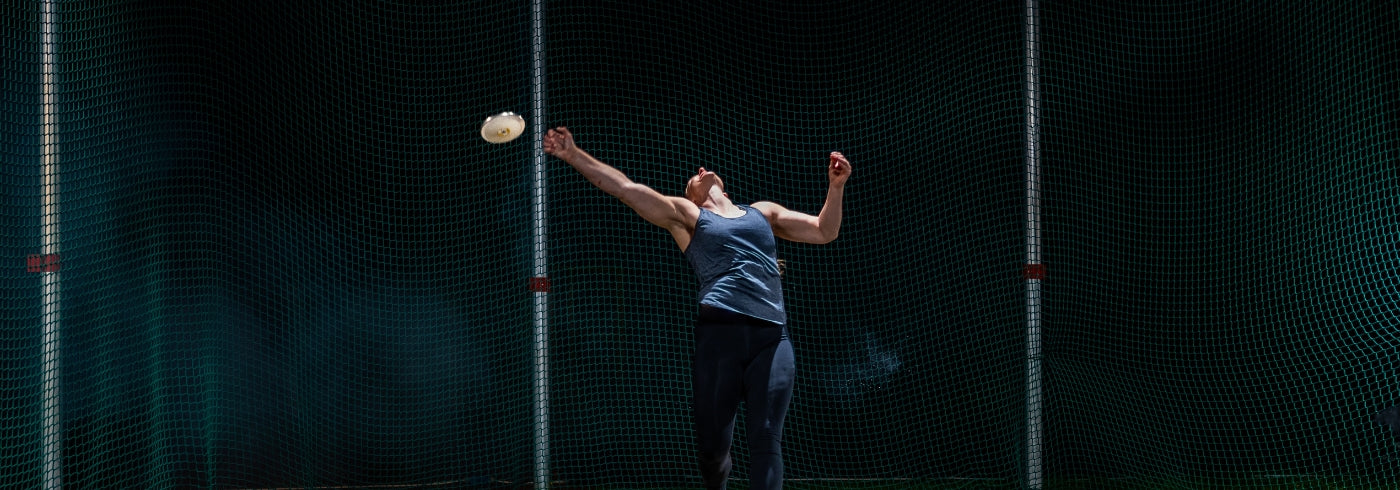
Strategic Goal-Setting for Throws Athletes
BY JOSH DOUGLAS
With the outdoor season approaching, it's time to make the best of our 2024 competitions through strategic goal-setting.
In this article, we will explore how to set personalised targets and navigate the journey towards improvement. I plan to delve into setting achievable benchmarks, emphasising adaptability and maintaining resilience in the face of challenges. Additionally, I’ll highlight the importance of developing a positive and determined mindset, as well as transforming setbacks into opportunities for learning and development.
The first thing athletes need to be aware of in the realm of discus throw is that progress can be slow, and effort is rarely immediately rewarded with further distances. This can be incredibly disheartening to some, especially if you have high expectations for yourself…and why shouldn’t you? But just because you have targets you want to hit, this doesn't mean you can simply ignore the steps it will require to get there.
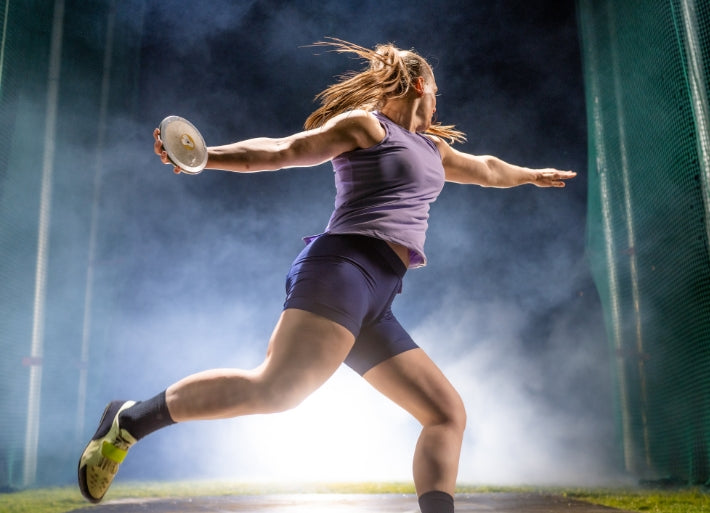
Outcome vs Process Goals
These types of goals are pretty self-explanatory, but I'll briefly outline them anyway.
Outcome Goals
These focus on the end result or outcome that an individual wants to achieve, such as winning a competition or achieving a specific distance in discus throwing. Furthermore, they are often beyond the direct control of the athlete and are influenced by various external factors.
Process Goals
On the other hand, process goals centre around the actions, strategies, and behaviours that an athlete can control and implement to improve performance. In discus throwing, process goals may include focusing on technique, increasing training frequency, or refining specific aspects of the throw. These goals are more within the athlete's control and contribute to overall improvement and success, regardless of specific outcome. To put it another way, you can’t achieve your destination without embarking on the journey.
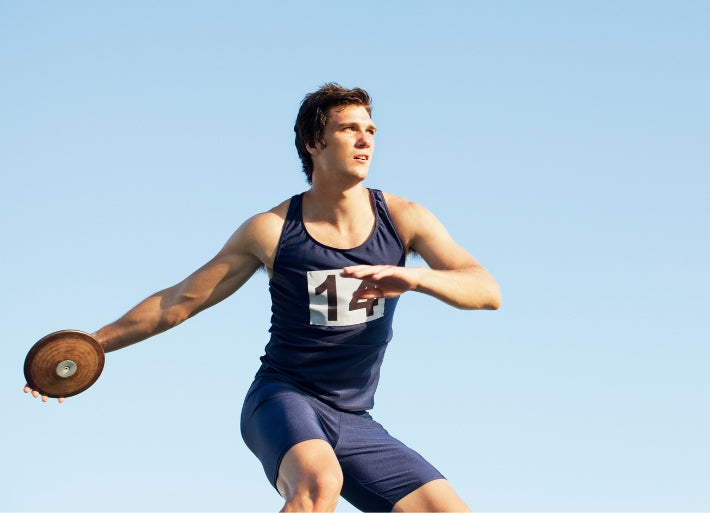
Make your goals achieveable
If you are an U23 thrower with a personal best of 45 metres and your outcome goal for the season is to throw 48-50 metres, you need to take a step back and contemplate what it will actually take to achieve that end goal. Example process goals could be any of the following:
- Making 45 metres a standard training throw
- Committing to your training plan
- Throwing 43 metres with the 2.25kg discus etc.
I’m not saying to lower your expectations, just understand that you're welcome to want a good outcome, but the priority should be on what will actually cause that outcome.
That said, there may be times in which goals need to be reviewed and changed. Especially in today's hustle culture, younger athletes need to be careful that the goals they're setting are achievable.
If the goals set are too far out of their current capabilities, the athlete may become disheartened, question their self-worth and give up altogether. Setting small attainable goals is ultimately the way to go. Similarly, setting lots of small goals will also lead to increased motivation towards training. If you set three big goals and only achieve one, this will upset the athlete more than having ten small goals and achieving 4-5 of them.
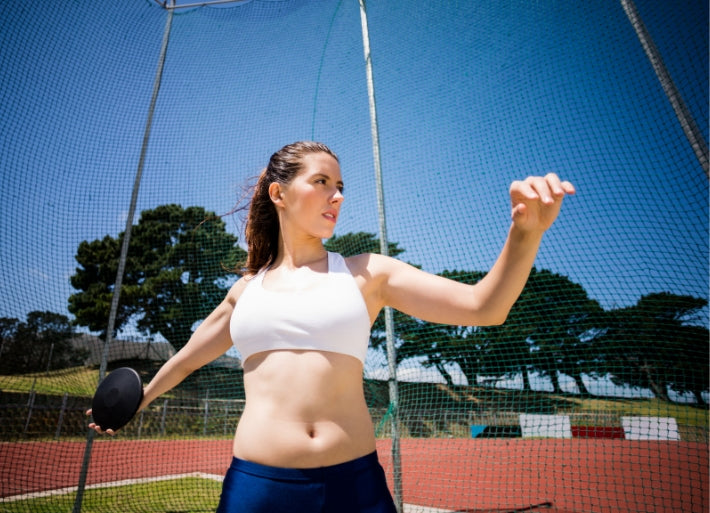
Recommended goals on how to progress
One thing I've learned over the years is that you need to take more responsibility than you think for your own growth and development in this event.
I feel like all athletes should become students of their event and that an athlete's primary goal should be to study their event. Even at the U23 and upwards level, I have known athletes who do certain technical things in their throws and when queried, have no explanation for why they do it or what positive impact it has on their throws performance.
For example, if an athlete either pre-turns or under-turns their right foot in the middle of the throw, they should be able to say exactly what the impact of that movement is on their throw. If the athlete is unable to do so, they should research the mechanics of discus throw to either confirm or correct their habits.
A lot of athletes look at the top throwers and try to emulate either their technique or their cues. There's nothing wrong with having a technical model, and there is some benefit to watching what elite athletes are doing, but that's only if you understand why they're doing it.
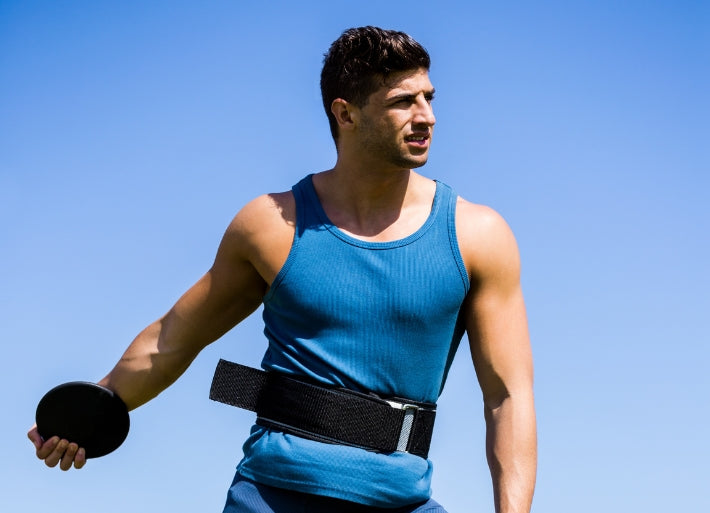
Staying humble
Another thing to realise, and it is quite humbling to realise this, is that you are farther away from the top than you think.
Even to this day, I haven't truly grasped the fundamentals of this event, therefore there is no advantage in looking for quick fixes to cover up years of bad habits. Athletes at that level are chasing the extra 1% that will improve their distances and when you try to do the same, you forget that the strides you could potentially make are way bigger than you give yourself credit for. Whilst it can be disheartening to acknowledge this, there's also some joy that comes with realising that your potential is larger than you think.

Choose your role models wisely
Another goal I would advise you set yourself is that if you do have a favourite high-level athlete or one you're trying to “copy”, search for one that closely resembles you physically.
I’m a 5”11 thrower who isn't the strongest, nor the largest. There is no point in me trying to make Daniel Stahl or anyone that tall/big my technical model. There are so many things that he does due to his size that I am simply unable to do. Being that tall also allows you to get away with a lot technically and since I am working with my frame, I have to learn to produce force in the most efficient way possible.
Put it this way... I can’t use as much momentum as a 6”5+ athlete to throw the discus. Or, if I collapse technically, there is a much larger drop in distance. I can throw anywhere between 44m and 53m depending on a variety of factors. The point I'm trying to make here is if you're a smaller thrower, look at how smaller throwers throw the discus.
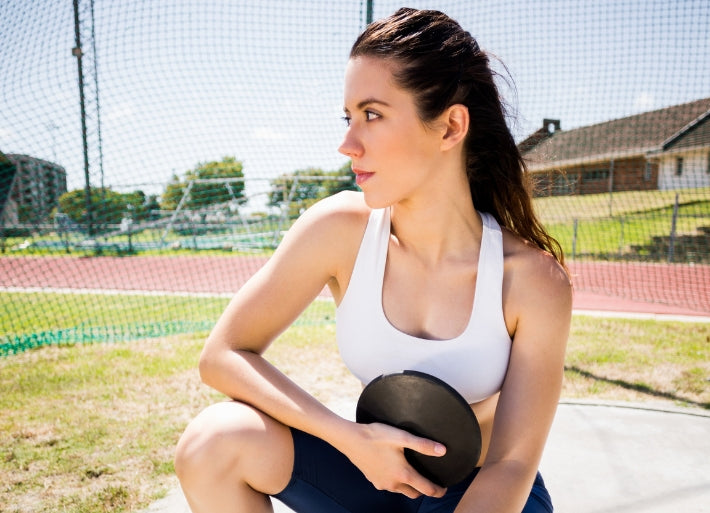
Help your fellow throwers
A smaller goal that I feel would benefit a lot of athletes is learning to coach people in your throws group.
If your coach has given you a certain cue or something to work on as a group, then learn to look out for when your peers do it correctly and when they don’t. When you do this, you're wiring your brain to check whether or not you're making the same mistakes. Doing this is also useful if there are occasions in which you have to self-coach.
For instance, if you are at a competition and for whatever reason your coach can't make it, the ability to look at your own throwing videos and correct them in turn is a vital skill. At the beginning of your throwing journey, the coach will be the one telling you what you've done wrong. Whilst there's nothing inherently wrong with this, it can lead to an over-dependence on their presence.
Coaches should strive to instil some autonomy in their athletes. If a throw went wrong, question your athletes as to why they think it was the case. Get them to dive below the surface as to why they had a technical error as more often than not, the actual cause is the least obvious one to the untrained eye. This questioning should be done with and without video assistance. The ability to feel what your body is doing will put you way ahead of your competitors as you won't have to rely on a camera or a coach to be able to perform to the best of your technical ability.
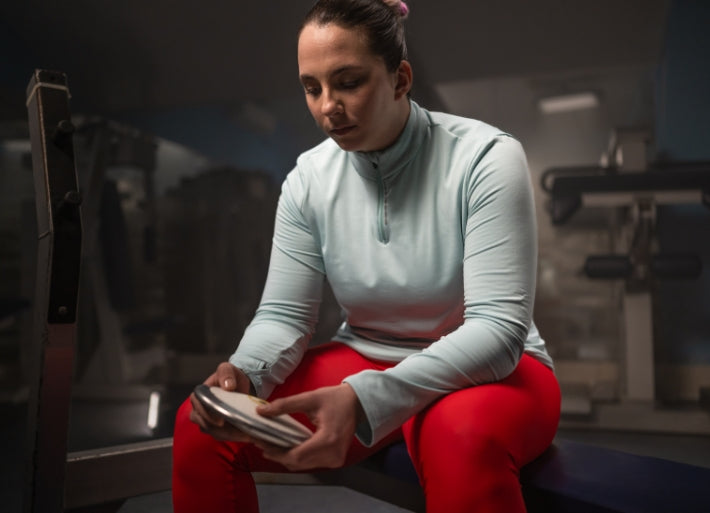
Be honest with yourself
It is also fine to simply state that you don't know what went wrong. There's no shame in that and the pure fact that you are intentionally trying to feel what positions you're getting yourself into will teach your brain to heighten its awareness.
Even athletes who have been training for years and years don't have this ability. You'll ask an athlete if they know what position they hit or you'll show them a video of their throw and with a blank face tell you they had no clue. Learn to do this and the potential for faster progression increases dramatically.
The final goal that I would recommend to others is simple...
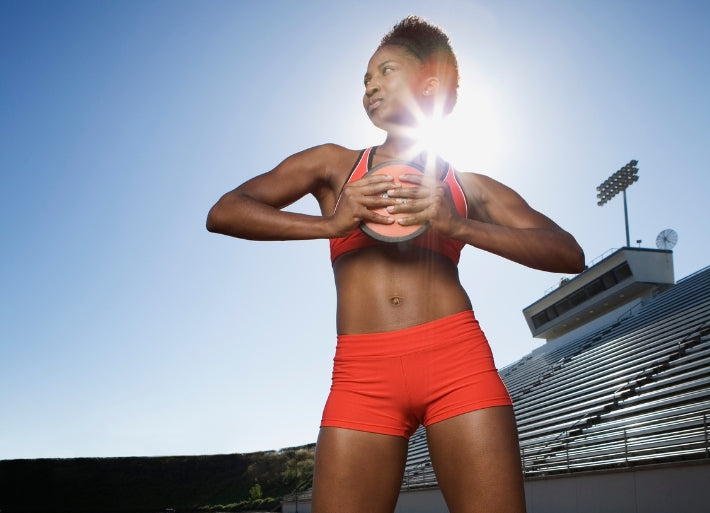
Have fun!
This event is technical, unforgiving and can definitely suck at times. If you want instant gratification, then this isn't the event for you. However, by learning to enjoy the process, the trials and the tribulations, then you’re setting yourself up very well for the foreseeable. You can last in this event until your 30s if you want to!
The road is long, so you might as well enjoy it for as long as you choose to stay on it. This is something I've had to re-learn and it's one of my goals that stays consistent every year.
Do I always have fun? No, but I try my best to enjoy every moment. Every disappointing training session, every brutal workout, and trying to take pride and some joy out of the fact I'm working this hard at something.
I hope you found this post informative and took something away from it to add to your goals this season. I look forward to seeing how you all throw this year while we achieve our goals together!
About Josh Douglas

Joshua Douglas is a shotputter and discus thrower, who competes across the UK and is a high placing athlete in many of the events he participates in.
He is also currently undertaking an undergraduate degree in sport psychology, and is very passionate in helping other athletes in this area, as well as other areas in throwing and athletics!
Josh will mainly be talking about discus throw in his content. However, as he is studying sport psychology at university, he will also cover this area in his blogs where he can!
Joshua is a member of Southampton AC & Loughborough Students AC.
Instagram: @bigbjosh


Leave a comment